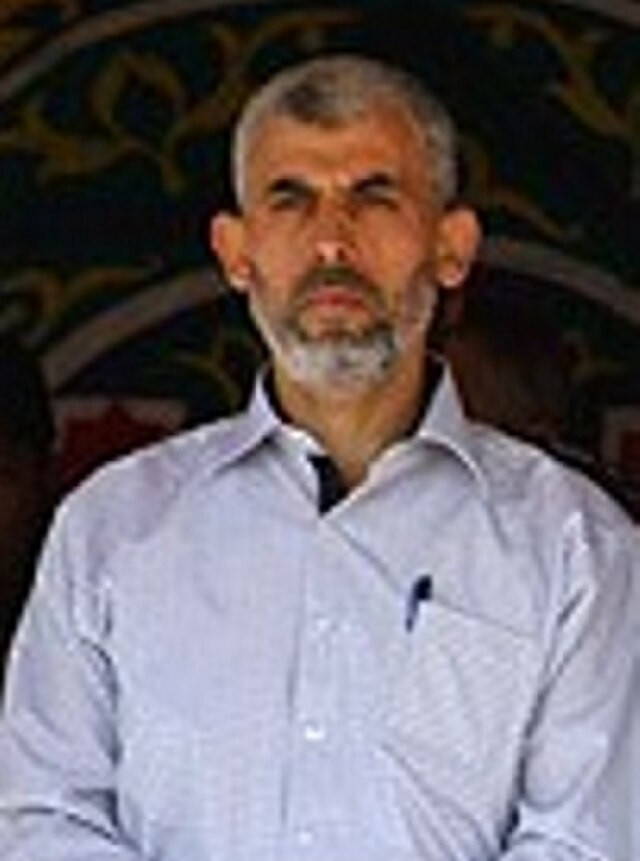The Israeli military is investigating whether Yahya Sinwar, the top leader of Hamas and the orchestrator of the deadly October 7 attacks, was killed during a recent ground operation in the Gaza Strip. The Israel Defense Forces (IDF) and the domestic security agency Shin Bet said Thursday that three militants were eliminated in a building in Rafah, southern Gaza, where Sinwar was believed to be hiding. However, the military is still working to confirm whether one of the dead was Sinwar.
"At this stage, the identity of the terrorists cannot be confirmed," said an IDF statement. DNA tests are being conducted on the bodies to establish whether Sinwar, 60, who has long been at the top of Israel's most-wanted list, was among those killed. The operation targeted a militant stronghold, but there were no signs of Israeli hostages being present at the site, the statement added.
Sinwar, known for his ruthless tactics, earned the nickname "The Butcher of Khan Younis" for his violent reprisals against both Israelis and Palestinians suspected of collaborating with Israel. His reputation for cruelty was cemented during the October 7 Hamas-led attack that left over 1,200 Israelis dead and more than 250 hostages captured. Israeli authorities have vowed to eliminate him for his role in masterminding the attack.
Hamas has not confirmed Sinwar's death, and the group's media channels have urged Palestinians to await official statements rather than relying on Israeli reports. Al-Majd, a Hamas-affiliated website, said the Israeli media's coverage was designed to "break the spirit" of Palestinians and called for patience.
The potential death of Sinwar would mark a significant victory for Israeli Prime Minister Benjamin Netanyahu and his military leadership, which has already conducted several high-profile assassinations of Hamas and Hezbollah leaders in recent months. Israeli Defense Minister Yoav Gallant underscored Israel's determination to track down its enemies. Posting on X, formerly Twitter, Gallant cited a biblical verse: "You will pursue your enemies, and they will fall before you by the sword." His post included images of recently killed militant leaders, with a blank space ominously reserved for Sinwar.
Sinwar's whereabouts have been the subject of intense speculation since the start of the Gaza war, which has led to more than 42,000 deaths in Gaza and turned large parts of the territory into rubble. He has been thought to be hiding deep within the network of tunnels that Hamas has constructed under Gaza over the last two decades to evade detection and conduct military operations. These tunnels are believed to be a critical part of Hamas' strategy, possibly housing weapons, fighters, and even hostages taken during the October 7 attacks.
"We will get to him, however long it takes," IDF spokesman Lt. Col. Richard Hecht said shortly after the war began. "Sinwar is a dead man walking."
Sinwar's history as a militant leader dates back decades. Born in the Khan Younis refugee camp in Gaza, he became involved with Hamas shortly after its founding in 1987. In 1989, he was arrested by Israel for his role in the abduction and killing of two Israeli soldiers, as well as for orchestrating the murders of four Palestinians he suspected of collaborating with Israel. Sentenced to life in prison, Sinwar served 22 years before being released in a 2011 prisoner exchange for the Israeli soldier Gilad Shalit.
Following his release, Sinwar quickly rose through the ranks of Hamas and was elected as its political leader in 2017. Known for his hardline views and strong ties to Hamas' military wing, Sinwar took over leadership of the entire group in 2023 after the assassination of his predecessor, Ismail Haniyeh, in Tehran. Haniyeh's death, like that of many other Hamas and Hezbollah leaders, has been attributed to Israeli operations.
Kobi Michael, a senior researcher at the Institute for National Security Studies in Tel Aviv, noted Sinwar's longstanding influence in the region. "Sinwar has been active since the early days of Hamas. Even in jail, he became a prominent figure among Palestinian prisoners and wielded significant influence," Michael said.
Despite the ongoing operations to eliminate Hamas leadership, the situation in Gaza remains dire. The conflict has resulted in widespread devastation, with many Gaza residents displaced by relentless airstrikes. Israeli forces continue their ground operations, targeting Hamas fighters and infrastructure in a campaign that officials have warned could last for months.
The death of Sinwar, if confirmed, would represent a major blow to Hamas' leadership, but analysts caution that it may not bring a swift end to the conflict. Hamas has deeply entrenched itself in Gaza, and its tunnel networks and military capabilities remain significant obstacles for Israeli forces.




